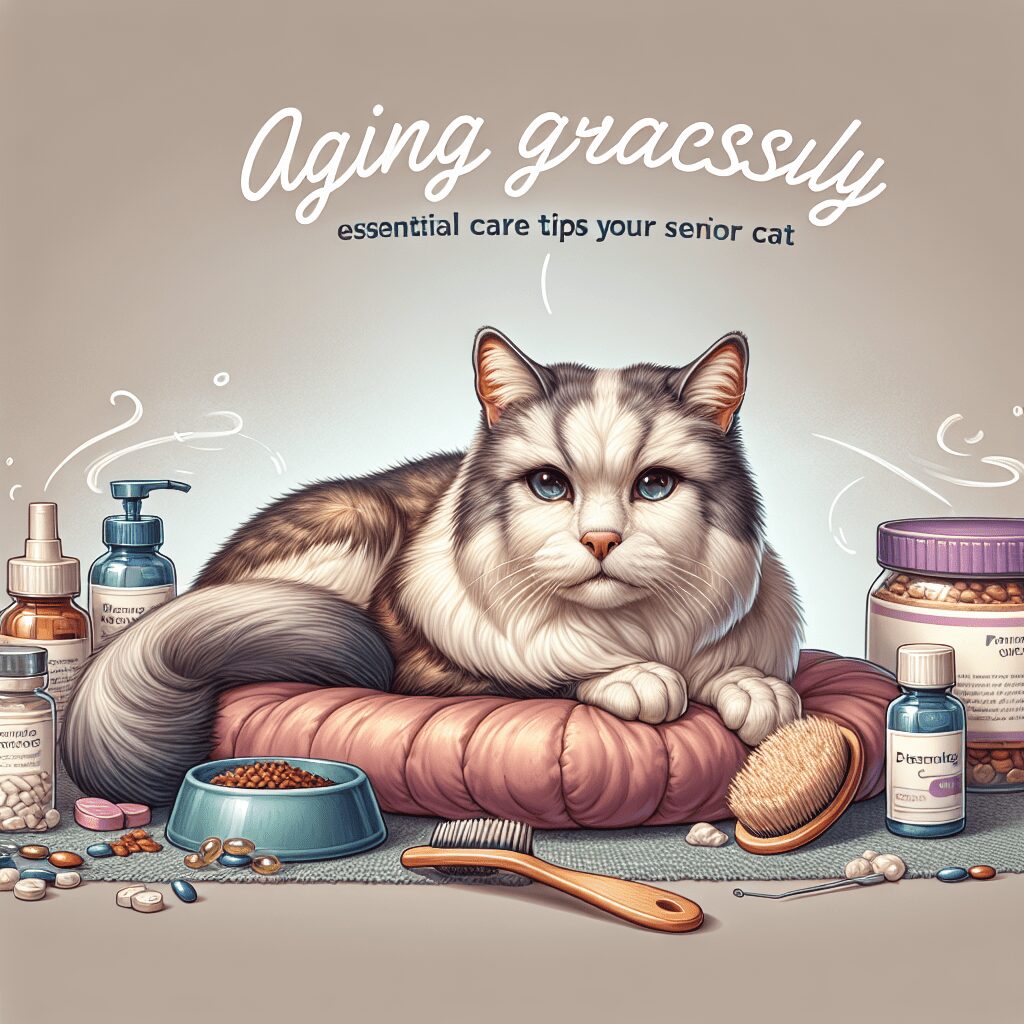Aging Gracefully: Essential Care Tips for Your Senior Cat
As our feline companions grow older, they deserve special attention tailored to their needs. Caring for a senior cat can enhance their quality of life and foster a loving bond between you and your furry friend. This article offers practical, experience-based tips on how to ensure your aging cat thrives in their golden years while embracing a positive and nurturing approach.
Understanding Your Senior Cat’s Needs
Senior cats often exhibit changes in behavior, health, and mobility. Recognizing these changes helps in adjusting their care accordingly. Common features of aging cats include reduced energy, changes in appetite, and occasional weight loss. Additionally, they might prefer warmer resting places or may become more affectionate. Understanding these aspects serves as a foundation for dedicated, thoughtful care.
Benefits of Tailored Care
Tailoring care for your senior cat offers numerous advantages. It enhances their comfort and happiness while addressing specific health challenges that often arise with age. By focusing on their individual needs, you can prevent or manage potential health issues like arthritis, dental disease, or kidney problems. This proactive approach helps maintain their overall health and encourages a fulfilling life despite the challenges of aging.
Who Should Care for Senior Cats
Any cat parent can become a dedicated caregiver for senior cats. This responsibility extends not just to owners of aging felines but also to veterinarians, pet sitters, and volunteers in animal shelters. Each can play a significant role in ensuring that an aging cat receives appropriate care, love, and nutrition tailored to their age and unique needs.
Identifying the Signs of Aging
Awareness of the signs of aging in cats is crucial for effective care. Look for changes in behavior such as decreased playfulness, sleeping more, or showing reluctance to jump. Additionally, observe for signs of discomfort, like limping or vocalization, which may indicate arthritis or other painful conditions. Regular check-ups with a veterinarian can help identify and address these issues before they escalate.
Establishing a Routine for Care
Routine care is essential for any senior cat. This includes regular feeding schedules, grooming sessions, and vet visits. Create a daily routine that incorporates gentle play and relaxation. Senior cats often enjoy interactive toys or gentle brushing. Incorporating these practices can ensure they receive adequate mental and physical stimulation while also reinforcing feelings of security and stability in their environment.
Nutrition and Diet Considerations
Aging cats benefit from a specialized diet that caters to their specific health needs. High-quality senior cat food usually features fewer calories and added supplements for joint health. Incorporate the following foods into their diet to promote wellness:
- High-quality protein sources
- Omega-3 fatty acids
- Antioxidant-rich fruits and vegetables
- Supplements for joint support
- Increased moisture in their diet, such as wet food or added water
Encouraging Hydration
Hydration is essential for senior cats, particularly in preventing kidney problems. Make fresh water easily accessible throughout your home. Consider a pet water fountain to encourage drinking, as many cats are attracted to running water. Incorporate moisture-rich foods into their diet and regularly monitor their water intake to ensure they remain well-hydrated.
Creating a Comfortable Environment
Creating a comfortable living space is vital for a senior cat. Ensure they have cozy sleeping areas that are warm and soft. Provide secure spots for climbing and hiding but minimize obstacles that may be difficult for them to navigate. Use low-sided litter boxes and ensure that food and water dishes are easily accessible. A safe and comfortable environment fosters independence while accommodating their aging needs.
Pros and Cons of Senior Cat Care
When caring for senior cats, it’s beneficial to weigh the pros and cons. Consider the following:
Pros:
- Stronger bond through dedicated care and attention.
- Enhanced quality of life through tailored nutrition and health management.
- Opportunity to learn more about feline health and behavior.
Cons:
- Increased veterinary visits may lead to higher costs.
- Special diets or medications can require additional planning and effort.
- Emotional challenges related to aging and possible health issues.
Similar Care Practices for Other Aging Pets
While this article focuses on senior cats, many care practices can apply to other aging pets. Dogs and small mammals also require similar adjustments in diet, environment, and healthcare. Understanding the nuances specific to each species ensures comprehensive care tailored to the unique needs of your older pets.
Frequently Asked Questions
1. At what age is a cat considered a senior?
Cats are generally considered seniors at around 10-12 years old.
2. How can I tell if my senior cat is in pain?
Signs of pain can include decreased activity, refusal to jump, hiding, or increased vocalization.
3. Should I change my cat’s diet as they age?
Yes, switching to a senior cat food that meets their nutritional needs is beneficial.
4. How often should I take my senior cat to the vet?
Regular vet visits every 6 months can help monitor their health and identify potential issues early.
5. Can I help my senior cat maintain a healthy weight?
Absolutely! Proper diet, portion control, and regular play will help maintain a healthy weight.
Disclaimer: As an Amazon Associate, I earn from qualifying purchases. I may earn a commission from qualifying purchases as an affiliate. Please note that I only recommend products I believe will provide value to my readers.









